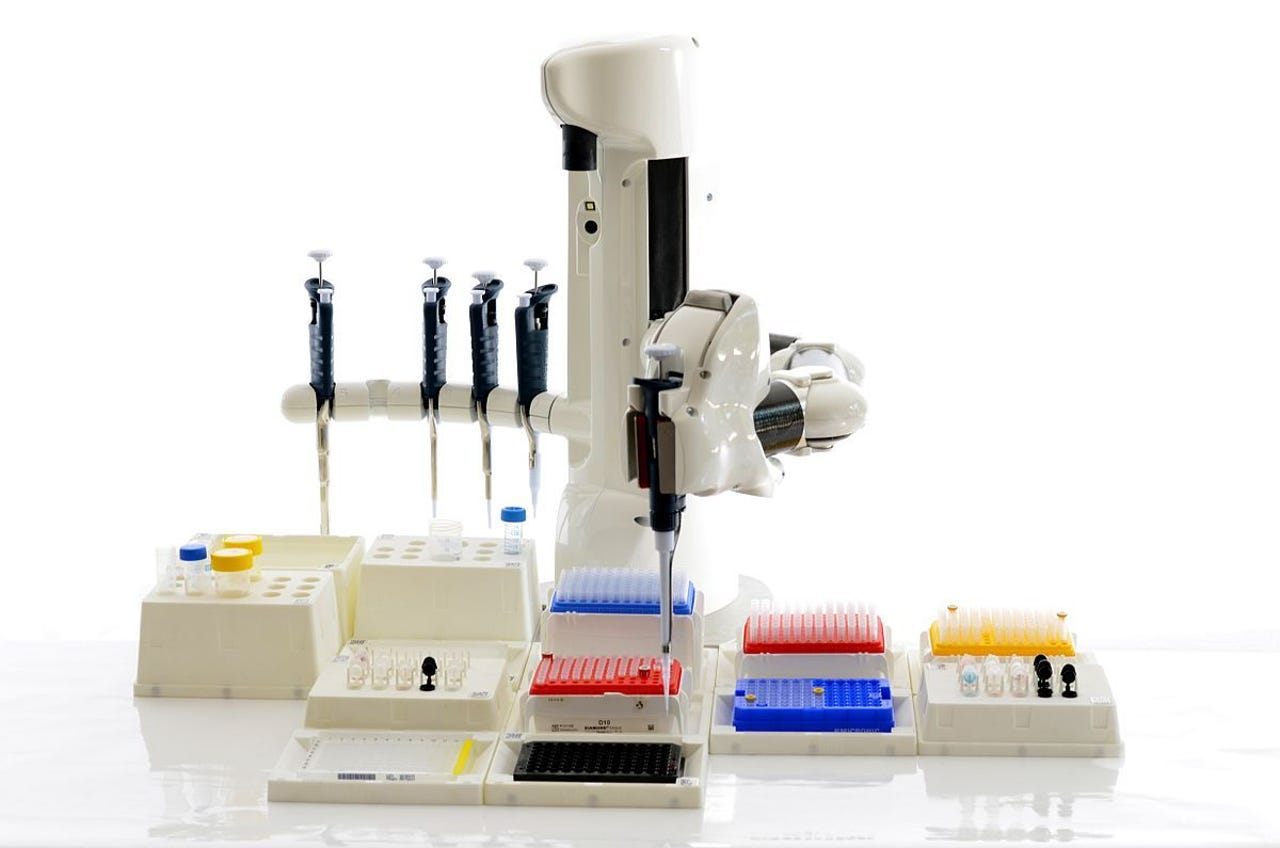New robots reduce human error in life science labs


Featured
Andrew Alliance, a Swiss company that makes liquid-handling robots for life sciences labs, just closed a $14 million C-round.
Read also: Robotics in business: Everything humans need to know
It's the latest evidence of a relatively new trend toward automation in the hard sciences, which have been slower than many other industries to embrace automation technology.
That may seem odd. Laboratories are high tech places, after all, and in an era when burger joints and construction sites are embracing robots, it seems obvious that lab managers would be ahead of the curve.
But labs tend to be governed by a difficult combination of intense regulation, budget constraints, and longstanding tradition, all of which have forestalled the forward march of automation.
With a ready supply of grad students and interns willing to work impossible hours for little or no pay, there hasn't been a compelling labor argument for additional automation in many academic settings, where future scientists and researchers learn the ropes. And because labs often fall under the managing jurisdiction of a highly-credentialed and invariably busy person, it can also be difficult for companies to market their products to anyone with decision-making capabilities.
But falling sensor prices and increasing market penetration of robots have brought the costs of automation technology down. That's led to spiking interest in automating liquid-handling, which is a notoriously error-prone component of work in the hard sciences.
Andrew Alliance's flagship product is a tabletop robot that fits in a footprint about the size of piece of notebook paper. Thanks to advances in collaborative automation, the robot is ready to go out of the box and is easy to operate.
"Demand for better reproducibility continues to increase," said Otello Stampacchia, managing director and founder of Omega Funds, an early investor in Andrew Alliance.
Read also: How 5G will drive down the cost of robots (TechRepublic)
So does competition in the space. Earlier this year I wrote about Opentrons, which makes a pipetting robot for use in labs and recently raised $10 million in seed funding. Opentrons' goal is to become the "PC of biology labs."
May the best robot win.